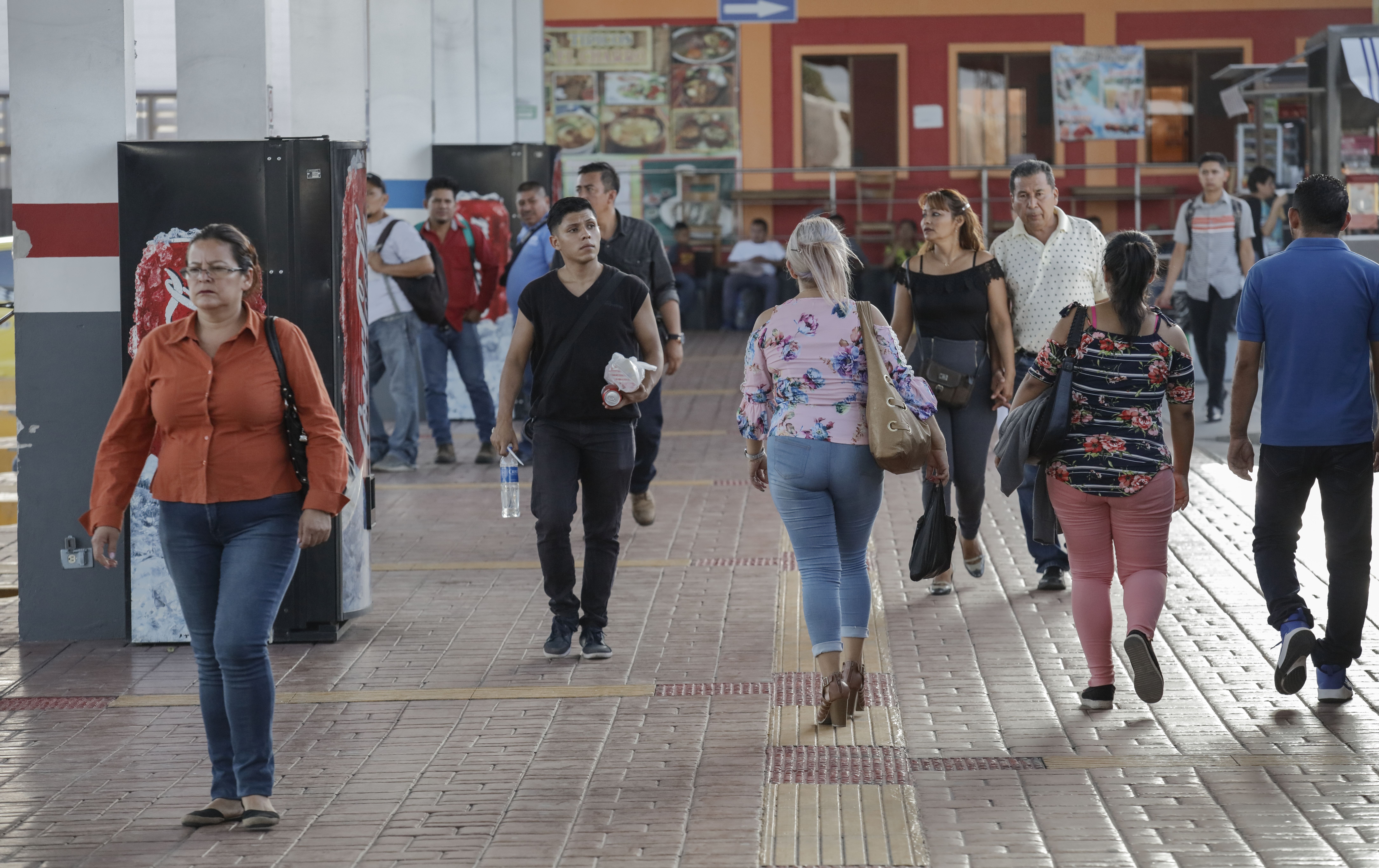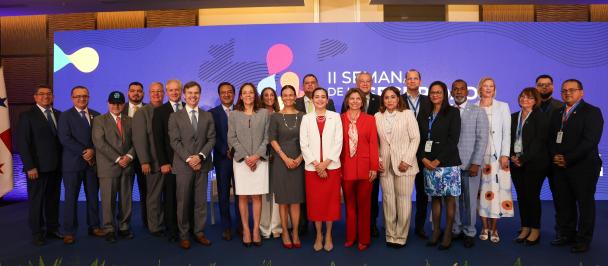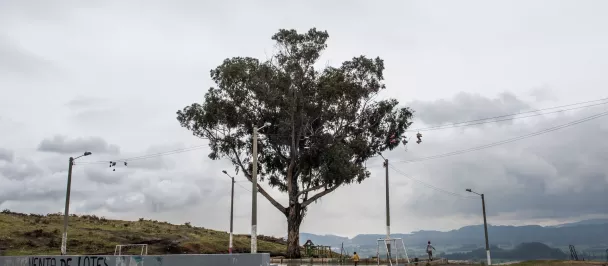InfoSegura is the first USAID and UNDP regional strategic partnership in the matter of citizen security. Photo: UNDP El Salvador
New York, Panama, El Salvador October 5th, 2021. The United States Agency for International Development (USAID) and the United Nations Development Programme (UNDP) for Latin America and the Caribbean agreed to a three-year renewal of the strategic partnership to strengthen evidence-based policies on citizen security in Central America and the Dominican Republic. This partnership set in motion the Infosegura Regional Project in 2014, mobilizing $21 million for national and regional public institutions responsible for information management in the area of citizen security.
This new stage involves the deployment of $10 million to the countries in the region to continue to demonstrate results and sustain the progress that countries have achieved in institutionalizing the use of evidence in public policymaking on the matter of people-centered citizen security with a focus on prevention.
The new $10 million investment will strengthen and help ensure sustainability for progress the countries have achieved in institutionalizing the use of evidence in policymaking and following up on public policies for citizen security. "We work in close collaboration with the UNDP on the programme called Infosegura, and it is a really important tool to help certain governments compile data on crime and violence, and governments and civil society in those countries are using the data to inform public policy," stated Peter Natiello, USAID Deputy Assistant Administrator, Latin America and the Caribbean Bureau.
InfoSegura is the first USAID and UNDP regional strategic partnership in the matter of citizen security, enhancing work the UNDP does with strategic partner institutions in the sector, and a robust model for regional integration, spotlighting the inclusion of voices from civil society and academia by consolidating the CONOSE network. This new phase will see InfoSegura continuing to enhance the knowledge, capacities, and lessons learned in the institutions that specialize in citizen security and justice.
This coordinated work involves 42 public institutions, 27 civil society organizations, and 11 academic institutions, supporting capacity-building for over 400 public officials, seven digital multidimensional information management systems, over 10 specialized regional studies, and 62 national reports.
InfoSegura contributes to the creation of evidence to reconsider and redefine the rules of the game, reimagining institutions from the perspective of inclusion, transparent management, and high-quality, people-centered public services. Therefore, citizen security is a prerequisite to achieve the sustainable development and human rights agenda, the key to strengthening the ecosystem for the Rule of Law, and eradicating the use of violence as a mechanism for negotiation between political and social actors, and an inclusive justice system.
"InfoSegura is a fundamental stakeholder in strengthening different governments' capacity for the production, use, and dissemination of information for public policies. In this context, cooperation with USAID continues to be fundamental to be able to contribute to increasing citizen trust and engagement in social transformation," stated Luis Felipe López Calva, UN Assistant Secretary-General and UNDP Director of the Regional Bureau for Latin America and the Caribbean.
Between May 2014 and May 2021, the UNDP had ongoing work through InfoSegura in Guatemala, El Salvador, Honduras, Belize, Costa Rica, and the Dominican Republic with the motto: “Going from telling to understanding, and understanding for transformation.” This vision has helped drive the shift from quantifying and standardizing data on the incidence of crime to more strategic information management, focusing on the multidimensional analysis of populations and territories most impacted by different forms of violence and insecurity, the production of knowledge, innovation, and new technologies, using evidence to strengthen public policies on citizen security, with an emphasis on the prevention of violence and access to justice, the promotion of social cohesion, with a focus on gender and human rights.
In addition to knowledge products and informing public policy, the work has developed tools to monitor the 2030 Agenda, specifically Sustainable Development Goal 16: Peace, Justice and strong institutions; and SDG 5: Gender equality, and to develop targets for eradicating crime and violence affecting men and women. Furthermore, reliable data is showing that between 2015 and 2020, in the sub-region of Central America and the Dominican Republic the joint total of violent deaths declined by 51%, (48.5% female victims and 51.5% male victims). In 2015, the rate in the region was 45.7 per 100,000 and in 2020 it reached 18.5 per 100,000 people, closing in on the rate for Latin America.
The key has been institutionalizing the processes and aligning them with national security strategies, making it possible for the processes to be sustainable even with elections campaigns and turnover in administrations, this has even been the case during the COVID-19 pandemic.
In this sense, Infosegura will make effective contributions to the UNDP response for recovery from the COVID-19 Crisis: Updated multidimensional analysis enabling sharp, swift, and sustained territorialized and targeted responses to health crises, natural disasters, surges in violence, and other obstacles to the progress of sustainable development. Therefore, InfoSegura contributes in a cross-cutting way to the 2030 Agenda, ensuring no one is left behind. Project resources go towards greater and enhanced data disaggregation, multidimensional analysis, updating risk maps that are created with interinstitutional information, and are useful in prioritising and targeting investments and actions in cases where resources are limited.
InfoSegura is also an active community of practice, enhancing South-South exchange of knowledge and experiences in implementation, as well as an ongoing exploration of innovation and use of technology to transform data into actions and responses to different needs in citizen security, justice, and cohesion in the different settings where it operates. Be a part of this far-reaching conversation on the Project website where there are details of the main developments, as well as specialized knowledge products, webinars, tools, and multidimensional reports with updated and validated data.
This partnership renewal reinforces the UNDP and the Project in their commitment to transforming the lives and institutions along the path of sustainable development.
Media Contacts:
UNDP:
Ana Maria Currea, Head of Communications, UNDP in Latin America and the Caribbean, ana.maria.currea@undp.org
Vanessa Hidalgo, Regional Communications Advisor, UNDP in Latin America and the Caribbean, Vanessa.hidalgo@undp.org
Elmer Menjivar, Communications Infosegura UNDP in Latin America and the Caribbean, elmer.menjivar@undp.org
USAID:
Karen Azucena, Head of Communications USAID EL Salvador, kazucena@usaid.gov

 Locations
Locations


